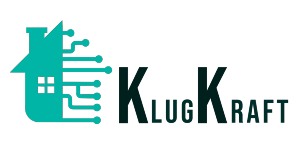Automation solutions for energy efficiency take a proactive approach to managing energy consumption. And reducing waste across residential, commercial, and industrial sectors. These solutions leverage smart technology, data analytics, and automation capabilities to optimize energy usage, lower costs, and mitigate environmental impact.
In residential settings, smart home automation solutions revolutionize energy management. They seamlessly integrate with energy-efficient devices like smart thermostats, lighting controls, and appliances. Enabling automated adjustments based on factors such as occupancy, time of day, and energy demand. For instance, smart thermostats learn user preferences over time, adjusting heating and cooling schedules accordingly. Similarly, smart lighting systems ensure energy consumption only where needed by dimming or turning off lights in unoccupied rooms.
In commercial and industrial contexts, energy management systems (EMS) and building automation systems (BAS) play a pivotal role in driving energy efficiency. These systems provide real-time monitoring of energy usage, identifying inefficiencies and automating processes to optimize consumption. For instance, BAS ensures optimal energy utilization and waste minimization by regulating HVAC systems, lighting, and other building functions based on factors like occupancy and weather conditions.
Automation solutions for energy efficiency offer manifold benefits. They lead to cost savings and operational efficiency while contributing to environmental sustainability by reducing carbon emissions and resource depletion. Moreover, by streamlining energy management processes and automating routine tasks, these solutions free up valuable time and resources for organizations and individuals. Enabling them to focus on core objectives and strategic initiatives. As the demand for energy-efficient solutions grows, automation technologies are poised to play an increasingly pivotal role in shaping a more sustainable and resilient future.

